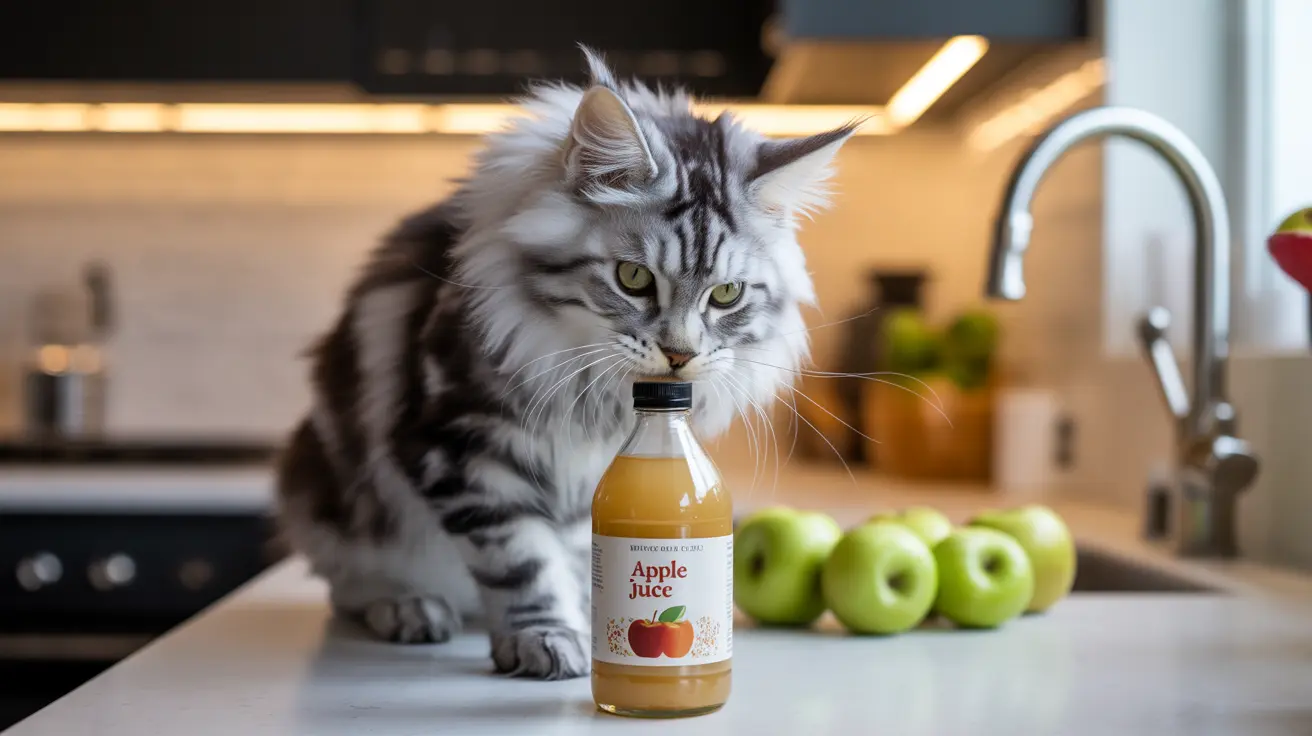As a pet parent, you might wonder if sharing your favorite beverages with your feline friend is safe. While cats may show curiosity about apple juice, understanding its potential effects on their health is crucial. Let's explore whether cats can have apple juice and what risks this common beverage might pose to your furry companion.
Cats are obligate carnivores with specific dietary needs that differ significantly from humans. While apple juice isn't toxic in small amounts, there are several important considerations before offering this drink to your cat.
Understanding Cats and Apple Juice: The Basics
Apple juice contains high levels of sugar and carbohydrates that cats' digestive systems aren't designed to process. A typical 100ml serving contains about 14.5 grams of sugar - far more than what's healthy for your feline friend. Additionally, cats lack the taste receptors for sweetness, meaning they don't even enjoy the sweet flavor that attracts humans to apple juice.
Potential Risks of Giving Apple Juice to Cats
Sugar Content Concerns
The primary concern with apple juice is its high sugar content. Cats' bodies aren't equipped to handle large amounts of sugar, which can lead to several health issues:
- Obesity
- Dental problems
- Diabetes
- Digestive upset
- Blood sugar spikes
Additional Health Risks
Commercial apple juices often contain additives and preservatives that could be harmful to cats. Some may even include artificial sweeteners like xylitol, which is toxic to pets and can cause severe health complications.
Safe Alternatives to Apple Juice for Cats
Instead of apple juice, consider these healthier options for your cat:
- Fresh, clean water
- Pet-specific water fountains
- Low-sodium chicken broth (without onions or garlic)
- Small amounts of tuna water
When to Contact Your Veterinarian
If your cat has consumed apple juice, watch for these warning signs:
- Vomiting or diarrhea
- Lethargy
- Changes in appetite
- Unusual behavior
- Excessive urination or thirst
Best Practices for Cat Hydration
The best way to keep your cat healthy and hydrated is to provide constant access to fresh, clean water. Consider placing multiple water bowls throughout your home or investing in a cat water fountain to encourage proper hydration.
Frequently Asked Questions
Is it safe for my cat to drink apple juice, and what are the potential risks?
While a few drops of apple juice won't typically cause immediate harm, it's not safe for regular consumption. The main risks include high sugar content, potential artificial sweeteners, and digestive issues.
Can cats have apple juice as a regular treat, or are there better alternatives?
Cats should not have apple juice as a regular treat. Better alternatives include fresh water, pet fountains, or small amounts of low-sodium chicken broth without harmful additives.
How much apple juice is safe for cats to consume without causing health issues?
Ideally, cats should not consume any apple juice. If exposure occurs, limit it to no more than a few drops. Regular consumption of any amount isn't recommended.
What are the health benefits and risks of giving my cat natural, unsweetened apple juice?
Even natural, unsweetened apple juice offers no health benefits for cats and still carries risks due to its natural sugar content. Cats don't need fruit juice for nutrition.
Why is water considered better than apple juice for cat hydration, and what are some safer options for treats?
Water is the ideal hydration source for cats because it's natural, sugar-free, and what their bodies are designed to process. For treats, consider small pieces of cooked meat or commercial cat treats specifically formulated for felines.
Conclusion
While apple juice isn't immediately toxic to cats in tiny amounts, it's best to avoid offering it to your feline friend. Instead, focus on providing fresh water and appropriate cat-specific treats that support their carnivorous dietary needs. When in doubt, always consult with your veterinarian about the best dietary choices for your cat's specific health requirements.






